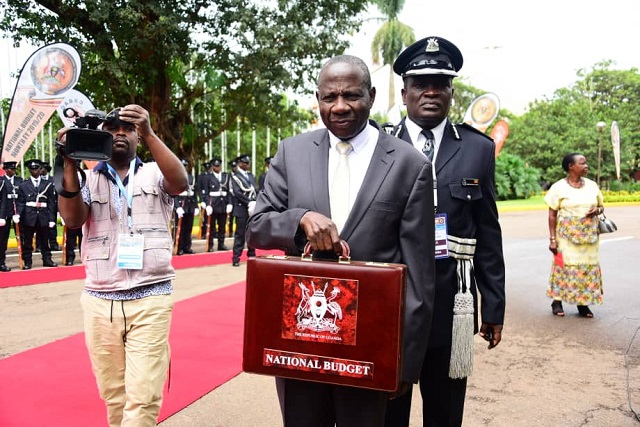
Kampala, Uganda | THE INDEPENDENT | More than 100 Districts and lower local government authorities are crying foul following the misallocation of local revenue funds by the Finance Planning and Economic Development Ministry this financial year, Uganda Radio Network has learnt.
The Entebbe Municipal Mayor, Vincent Kayanja, says the misallocation of local revenue funds has affected their operations. Local revenue is expected to finance priorities that are not funded by the central government and donors. Such activities include garbage collection, rehabilitation of several feeder roads, Local government expenditures including Administration and the financing of Local government council activities.
According to Kayanja, as a result of the misallocation, the affected Districts and lower local government authorities received less money in the first quarter of 2019/2020 financial year, which runs to September. He says the Finance ministry is struggling to settle the Shillings 182 billion anomaly while the local government units are still stuck on how to finance their priority projects.
These include among others Arua Municipality, Gulu, Jinja, Kabaale, Lira, Masaka, Mbale, Mbarara, Moroto, Soroti, Tororo, Kasese, Hoima, Kabarole and Mukono districts. For instance, Iganga municipality with a budget of Shillings 190M was allocated Shillings 4.5 billion, which affected Entebbe, Kabaale, Kasese and Mbale municipalities whose expenditure budget was cut.
Entebbe that projected to collect up to Shillings 7.9 billion in local revenue was only allocated Shillings 417 million affecting most of the institutions the municipal council runs. Kayanja notes that government hasn’t labored to rectify the anomaly raising fear in different municipalities on how they will deliver services without funding.
Kayanja says local revenue shouldn’t be allocated to different local governments as an equalization grant, adding each local government should be allocated funds based on its development expenditure budget submitted to the Ministry. He warns that unless the Ministry rectifies the anomalies, they may be forced to mobilise their electorate not to pay taxes.
In 2013, government introduced an integrated financial management system, an IT-based budgeting and accounting system to control spending, process payments, budgeting and reporting for government entities. The idea was to incorporate all local government budgets into the essential financial management system to among others stop corruption and embezzlement of funds at lower local government units.
All local government units are expected to submit their budgets and financial requests to the central bank for disbursement by through the Finance, Planning and Economic Development Ministry. This, according to Innocent Ssewankambo, a member of the Uganda Local Government Association has centralized the powers of local governments to decide on how and when to allocate resources.
Margaret Masembe, a local leader in Jinja, one of the affected municipalities, says government needs to quickly intervene since there are limited alternative sources of local revenue.
Jim Mugunga, the Spokesperson Ministry of Finance Planning and Economic, said the ministry is trying to rectify the anomalies, saying all local governments will be able to recieve what they are entitled too.
*****
URN
 The Independent Uganda: You get the Truth we Pay the Price
The Independent Uganda: You get the Truth we Pay the Price



